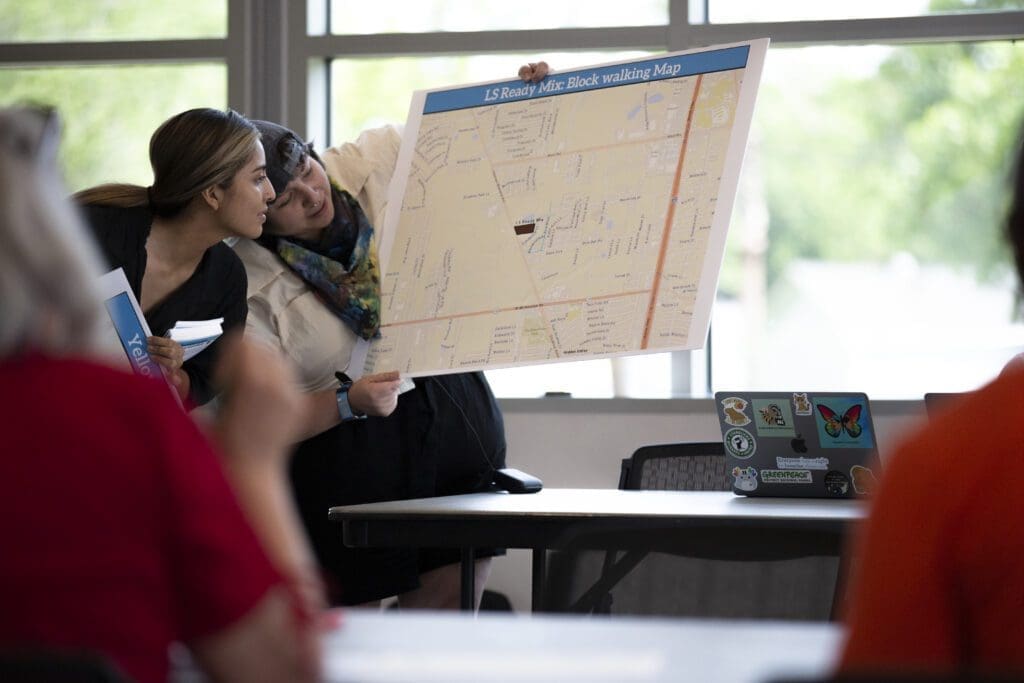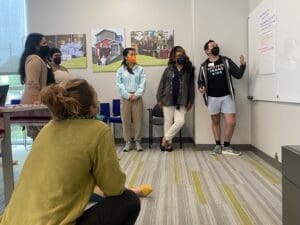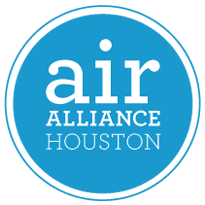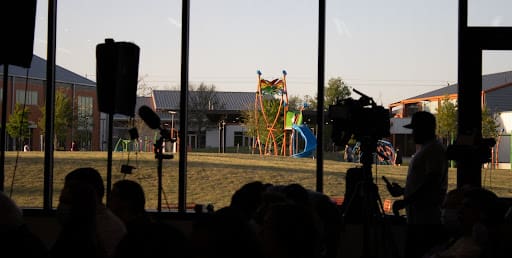The Environmental Justice Leadership Lab (EJLL) is a community-centered approach to tackling environmental justice issues related to air quality. The EJLL is a space for residents to cultivate a deeper understanding of the social and environmental conditions that inform environmental justice including systemic racism. The EJLL is for community members and leaders who want to increase their understanding of the various environmental agencies responsible for air quality and then access resources for advocating for clean air in the Houston area.
The EJLL includes three options: Training, Research, and Resources.
Training
Environmental Justice Engagement
Check out our training materials and technical assistance documentation below to learn more about getting involved with environmental justice work.
If you have questions about our guides or would like assistance with actions such as writing comments, contacting your elected officials, challenging a permit, or navigating the Texas Commission on Environmental Quality (TCEQ), please do not hesitate to contact us. Send an email to [email protected]. Se habla Español.
Air Alliance Houston is also available for virtual and in-person training sessions. We would love to talk to your community/organization about your training needs and/or attend your events to provide training. Get in touch with us! Send an email to [email protected]. Se habla Español.
Research

Through community-focused studies, Health Impact Assessments, maps, and the data we collect via our community air monitoring network, we seek to uplift communities most impacted by pollution and other health hazards with information to protect their health and advocate for change.
These maps and reports from us and other organizations below are open and accessible to the public, and we encourage you to take a look and use this information to:
- Validate your concerns about air quality with data
- Empower yourself to take action
- Present your concerns to your elected representatives
- Share with those in your community
Resources and Contacts
Air Quality
Water Quality
Legal Environmental Complaints
- Lone Star Legal Aid – you may qualify for free legal services. Income restrictions apply.
- How to Find a Lawyer
Disaster Relief
Labor Injustices
Immigration and Voting Rights
Public Health and Healthcare
- The Texas Local Public Health Organization directory lists local health departments, public health districts, and community health centers and clinics throughout Texas. View the directory.
Small Grants for Community Efforts
- EPA Environmental Justice Small Grants Tutorial: The EPA administers the Environmental Justice Small Grants program, which awards grants that support community-driven projects designed to engage, educate, and empower communities to better understand local environmental and public health issues and develop strategies for addressing those issues. This tutorial provides an overview of grant eligibility, types of projects, application criteria, tips, and advice.
- Houston LISC Small Grants: The Houston office of the Local Initiatives Support Corporation (LISC) offers small grant opportunities to support community-led projects, activities, and campaigns that develop civic engagement, community relationship building, and improve quality of life. Applications are typically accepted in the first quarter of the year until April 15th or until funding has been depleted.
From the Environmental Protection Agency
- Federal Interagency Working Group on Environmental Justice (EJ IWG)
- Capacity Building Through Meaningful Engagement – An engagement guide to help local and state government meaningfully engage with community.
Justice Initiatives
Language Justice
Comprehensive language access plans, especially in agencies like the TCEQ (Texas Commission on Environmental Quality), are crucial for fostering diverse community engagement. Without such access, many members of the community are excluded from providing comments, attending public hearings, and engaging with government agencies. AAH is in collaboration with Tecolotl, Woori Juntos, and other organizations to further strengthen the effort to promote language access and ensure that all voices in Harris County are heard.
Are you needing interpretation resources for Vietnamese and/or Spanish? Please reach out to Genesis Granados: [email protected]
Reproductive Justice
Air Alliance Houston sees reproductive justice as “the human right to maintain personal bodily autonomy, have children, not have children, and parent the children we have in safe and sustainable communities” (SisterSong). We recognize that the impact of environmental injustices is inherently tied to the ability of individuals to exercise their reproductive rights and autonomy, especially after the Dobbs decision in 2022.
Mom and Baby Action Network
Air Alliance Houston’s involvement in the Promote Environmental Justice working group of the Mom and Baby Action Network (M-BAN) reflects our commitment to addressing environmental justice issues that affect maternal and infant health. Our participation in this working group involves efforts to address environmental factors and air pollution by advocating for policies and practices that promote cleaner and healthier environments for families and communities, and contributing to the broader mission of improving health equity in this context.
AAH Authored resources
Other Resources
Encuentro: Working Towards Bodily and Environmental Justice

In 2023, Air Alliance Houston and Tecolotl organized a multi-sector convening series of organizations and individuals from environmental and reproductive justice spaces in Houston. The goal of this initiative is to create a platform to explore, emphasize, and act upon the intersection of environmental and reproductive justice.

